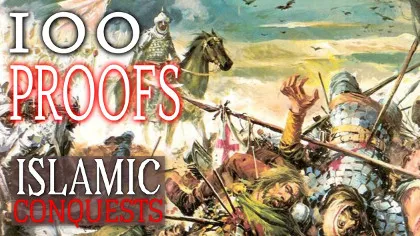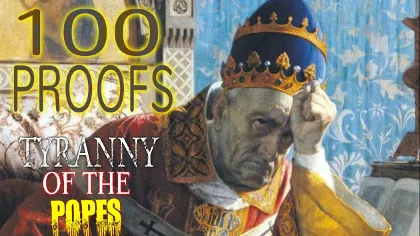TruthVid's 100 Proofs that the Israelites were White, Part 54: 67, The Little Horn of Daniel Chapter 8, continued; 68, Revelation chapter 9: The Army of the Euphrates

TruthVid's 100 Proofs that the Israelites were White, Part 54
We had left off in our last presentation with a discussion of the little horn of Daniel chapter 8 and our interpretation identifying it as a reference to Mohammed and the creation of Islam. Doing that, we used Isadore of Seville as an example of the anti-Jewish political climate of the era, in which it becomes evident that Jews would certainly be motivated to find a method by which to combat the rise of Christianity in Europe for the benefit of their own interests. Two canons proposed by Isadore had become law, whereby crypto-Jews would be deprived of their own children, and all Jews would be forbidden to hold public office, even if they claimed to be Christians. So we also see that in the early 7th century, Jews were considered as a race, and not merely as a religion. Then we presented evidence from citations compiled by Clifton Emahiser revealing that Mohammed was one such racial Jew, at least on the side of his mother. Even the early stories of the founding of Islam relate accounts of Mohammed’s having received the approval of Jewish rabbis before he first left Mecca.
Before we continue our discussion of Mohammed, there are two things we have discussed previously upon which I would like to elaborate. The first are the four divisions of Alexander’s empire. After his death, there was no clear heir to succeed him, and his son, who later became known as Alexander IV, had not yet been born. Alexander had a half brother named Philip III. After a fierce rivalry, Alexander’s half-brother Philip Arrhidaeus ruled for a short time as king of Macedonia, with Perdiccas, Alexander’s former bodyguard and cavalry general serving as regent. But both Philip and Alexander’s infant son were ultimately murdered. Perdiccas later died in Egypt, after a failed attempt to take that portion of the empire from Ptolemy. After Macedon, the other three divisions of the empire were the Ptolemaic Kingdom of Egypt, the Seleucid Empire in Syria and the east, and the Kingdom of Pergamon in western Asia Minor.












 Please click here for our mailing list sign-up page.
Please click here for our mailing list sign-up page.








Recent comments